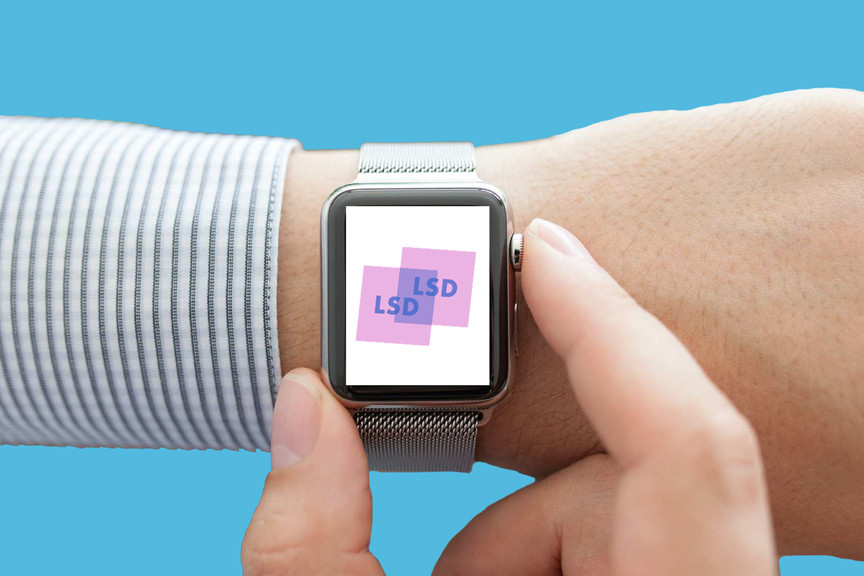Could wearable microdosing technology be a thing one day?
Could a liquid-delivery system meant to help maintain a personalized “scent bubble” quietly usher in the creation of wearable psychedelic microdosing technology? A U.S. patent for this system is just one among an increasing list of psychedelic-inspired intellectual properties.

Psymposia is a 501(c)(3) nonprofit research and media organization that offers critical perspectives on drugs, politics, and culture. We rely on contributions from our readers and listeners. Your support is vital to sustaining Psymposia.
Support Psymposia’s independent journalism on Patreon and help us drive the Mystery Machine! We’re a bunch of meddling kids who are unmasking the latest shenanigans on the psychedelics beat.
Could a liquid-delivery system meant to help maintain a personalized “scent bubble” quietly usher in the creation of wearable psychedelic microdosing technology? A U.S. patent for this system—just one among an increasing list of psychedelic-inspired intellectual properties—was awarded to Sensory Design & Technology LTD in 2019.
The bulk of the patent covers a product being developed for eScent—an “emotional” fashion company, which aims to redefine the way people use and wear perfumes. In short, the patent covers an AI-powered liquid-delivery device small enough to be integrated into “connected” jewellery and removable garment buttons for on-demand personalized perfumes or liquids. But, in a patent cooperation treaty (PCT) application published in 2019—which, if granted, would make the patent relevant not only in the U.S., but in many territories around the world—other potential uses for the technology are listed, including “microdosing psychedelic medicines (e.g. LSD, psilocybin) for therapeutic applications.”
The impetus for this technology was Philip K. Dick’s sci-fi thriller “UBIK.” The novel introduced eScent’s founder, Jenny Tillotson, to the notion of “reality-in-a-can”—a mystical substance of miracle properties (called UBIK) which is sprayed from a can and stabilizes reality. This appealed to her, as someone who has had to manage long-term bipolar and anxiety disorders, and she began developing eScent.
Through a “sensor-triggered, subscription-based” fragrance service, eScent’s wearable technology aims to dispense scents based on environmental and bodily triggers dictated by the user, according to their website.
Tillotson said that there is no final product yet, but they have created a number of working scent-dispensing prototypes triggered by an app and sensors. A dosed delivery system for psychedelics, however, is in early exploratory stages.
“My understanding is that microdosing psychedelics won’t be accepted by FDA for some time,” Tillotson said. Currently, she is researching psychoactive substances that can be delivered intranasally, without heat. This delivery method has come onto the scene recently with drugs like Johnson & Johnson’s patented esketamine nasal spray, and Silo Wellness’ patent-pending psilocybin nasal spray.
“I am personally interested in microdosing psychedelics to combat my social anxiety and for personal growth,” Tillotson said.
Along with psychedelics, future models of eScent devices aspire to deliver liquids, including CBD, pharmaceuticals, hormones, sun protection liquid, and insect repellent.
Correction 2/7/2020: The original version of this article stated that the micro-dosing technology was included in Sensory Design & technology LTD’s U.S. patent. It is actually included in their 2019 Patent Cooperation Treaty application.
Hey! Before you go… Psymposia is a 501(c)(3) non-profit media organization that offers critical perspectives on drugs, politics, and culture. We strive to ask challenging questions, and we’re committed to independent reporting, critical analysis, and holding those who wield power accountable.
Our perspectives are informed by critical analysis of the systemic crises of capitalism that have directly contributed to the unmitigated growth of addiction, depression, suicide, and the unraveling of our social relations. The same economic elite and powerful corporate interests who have profited from causing these problems are now proposing “solutions”—solutions which both line their pockets and mask the necessity of structural change.
In order for us to keep unpacking these issues and informing our audience, we need your continuing support. You can sustain Psymposia by becoming a supporter for as little as $2 a month.
Russell Hausfeld
Russell Hausfeld is an investigative journalist and illustrator living in Cincinnati, Ohio. He has a Bachelor’s degree in Journalism and Religious Studies from the University of Cincinnati. His work with Psymposia has been cited in Vice, The Nation, Frontiers in Psychology, New York Magazine’s “Cover Story: Power Trip” podcast, the Daily Beast, the Outlaw Report, Harm Reduction Journal, and more.





